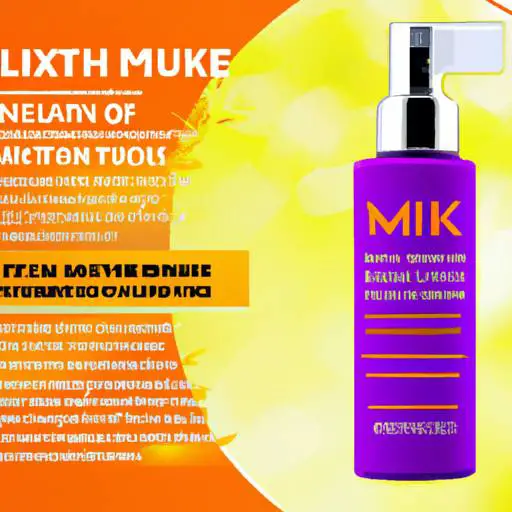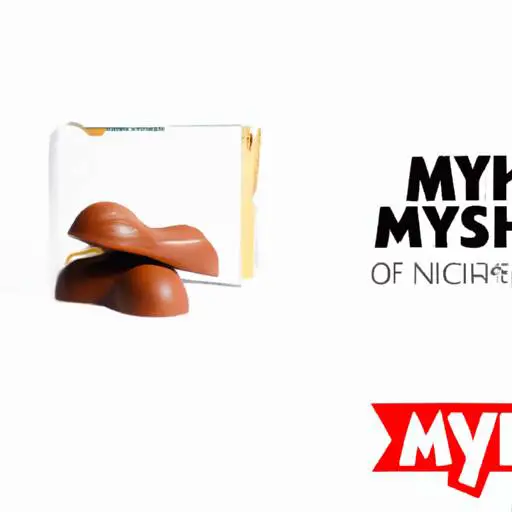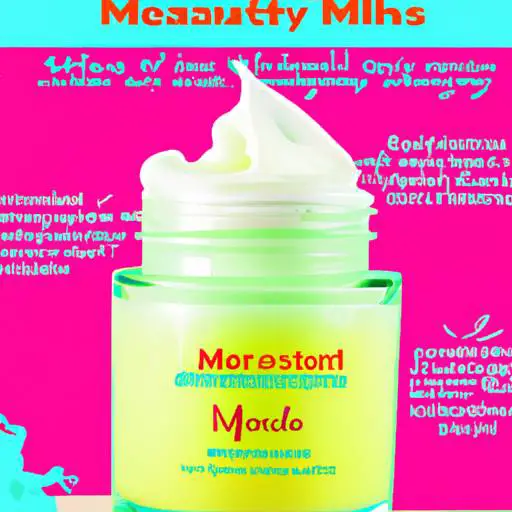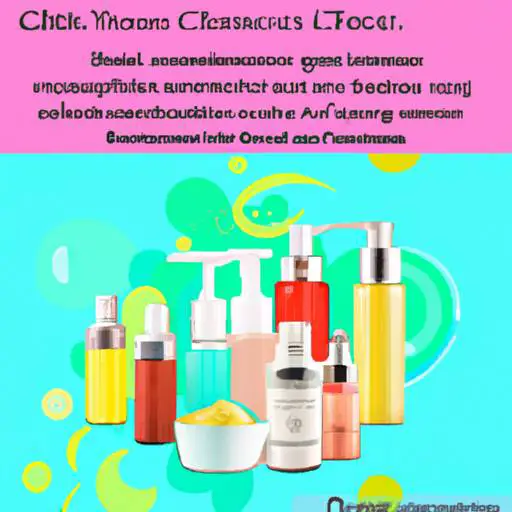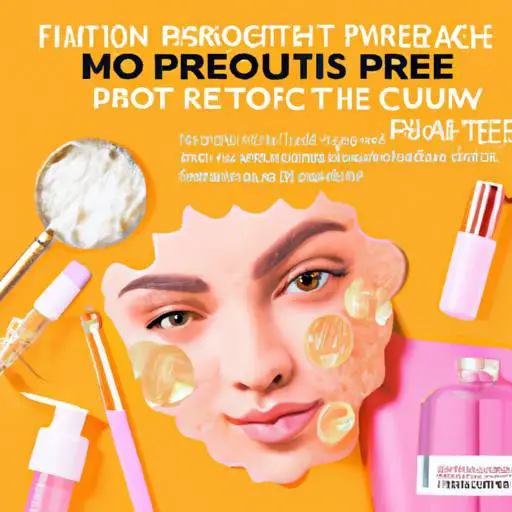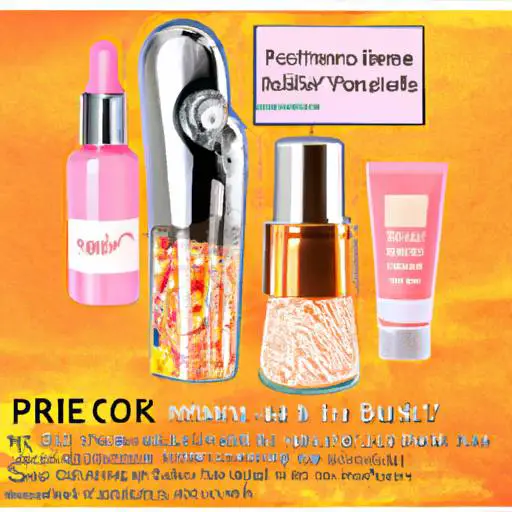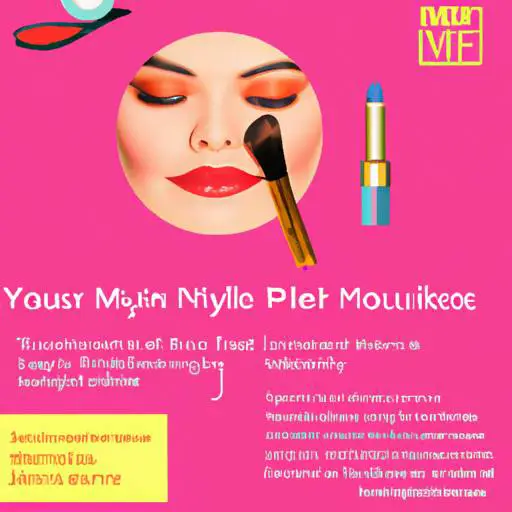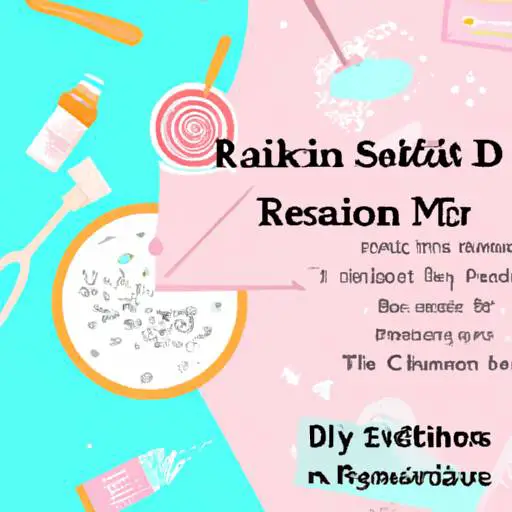The concept of pH balance in skincare has been widely discussed and touted as a key factor in achieving healthy skin. However, the truth behind pH and its impact on skincare may not be as straightforward as it seems. To delve deeper into the topic, it’s crucial to understand what pH balance entails and how it relates to skincare.
At its core, pH balance refers to the equilibrium between acidity and alkalinity in a substance. In the context of skincare, it relates to the pH level of the skin and the products we use on it. To comprehend this concept fully, it is important to explore the pH scale, which measures the acidity or alkalinity of a substance. Depending on its position on the scale, a substance can be deemed acidic, neutral, or alkaline.
Understanding how pH affects the skin is essential to determine its implications on skin health. While some argue that maintaining a specific pH balance in skincare products is crucial, others question its significance and practicality. The impact of pH on the skin’s barrier function and overall health, as well as the ideal pH level for healthy skin, are also important considerations.
The prevailing pH myth in skincare suggests that skincare products must be formulated to be pH-balanced to maintain the skin’s optimal health. However, not all skincare products are created with pH balance in mind. This raises the question of whether it is truly necessary to maintain pH balance in skincare products or if it is merely a marketing strategy.
Understanding the impact of pH on skincare ingredients is crucial in determining their effectiveness. Some ingredients may work better at certain pH levels, while others may be rendered ineffective or even detrimental to the skin.
To navigate the complexities surrounding pH and skincare, it’s important to understand your skin’s pH needs. Determining your skin’s pH level and aligning your skincare routine accordingly can help optimize its health and address specific concerns effectively.
By exploring the truth behind pH balance in skincare, we can discern the facts from the myths and make informed decisions about our skincare routines to achieve healthy, radiant skin.
Key takeaway:
- Understanding pH balance: pH is a measure of acidity or alkalinity, and it plays a role in skincare. It is important to understand the pH scale, know what is considered neutral, and differentiate between acidic and alkaline pH levels.
- Debunking the pH myth: While maintaining “pH balance” is often emphasized in skincare, it may not be necessary for all skincare products. Not all products are formulated to be pH-balanced, and the effectiveness of skincare ingredients can be influenced by pH.
- Considering your skin’s pH needs: It is crucial to determine your skin’s pH level and align your skincare routine accordingly. pH can affect the skin’s barrier function, and certain conditions may be influenced by pH imbalance.
Understanding pH Balance
Understanding pH Balance
Having a comprehensive understanding of pH balance is crucial for maintaining healthy skin and overall well-being. pH, which stands for “potential of hydrogen,” is a measurement that determines the acidity or alkalinity of a substance, and it plays a significant role in various aspects of skincare.
- The Skin’s Natural pH: The skin naturally maintains a delicate balance with a slightly acidic pH of around 5.5. This natural acidity is fundamental in supporting the skin’s protective barrier, keeping it adequately moisturized, and preventing harmful bacteria from thriving.
- The Impacts of pH Imbalance: When the skin’s pH becomes imbalanced, whether it becomes excessively acidic or alkaline, it can lead to various skin issues. An excessively acidic pH can result in dryness, irritation, and inflammation, while an overly alkaline pH can disrupt the skin’s barrier function, making it more susceptible to infections and breakouts.
- Choosing pH-Balanced Skincare Products: To maintain a healthy pH balance, it is essential to choose skincare products that are specifically formulated to be pH-balanced. It is advisable to look for cleansers, toners, and moisturizers with a pH level that closely matches that of the skin (around 5.5). These products actively support the skin’s natural acidity and help protect its barrier function.
- Avoiding Harsh Ingredients: Some skincare products may contain harsh ingredients that can disrupt the skin’s pH balance. These often include products with high alcohol content or strong detergents. It is crucial to opt for gentle, pH-balanced products that are formulated to nourish and protect the skin, as using such products can strip the skin of its natural oils and lead to imbalances and skin issues.
- Maintaining a Healthy Diet: What we consume internally can also have an impact on the pH balance of our skin. Consuming a balanced diet rich in fruits, vegetables, and lean proteins can greatly help in maintaining optimal pH levels. Additionally, it is advisable to avoid excessive intake of sugary and processed foods as they can also contribute to overall skin health.
Gaining a solid understanding of pH balance is crucial for achieving and maintaining healthy skin. By selecting pH-balanced skincare products, avoiding the use of harsh ingredients, and maintaining a healthy diet, you can actively support your skin’s natural pH and promote a radiant complexion.
A True History of pH Balance:
In 1909, Danish biochemist Søren Sørensen introduced the concept of pH, revolutionizing the fields of chemistry and biology. Sørensen’s groundbreaking work not only paved the way for understanding acidity and alkalinity but also brought about remarkable advancements in skincare and cosmetics.
Fast forward to the present day, and the importance of pH balance is widely acknowledged in the skincare industry. Skincare professionals and experts have conducted extensive studies on the effects of pH on the skin and its role in maintaining skin health.
With a deeper comprehension of pH balance, skincare companies have innovatively developed products specifically formulated to support the skin’s natural pH. These extraordinary products aim to restore balance, promote hydration, and nourish the skin, assisting individuals in achieving the healthy, glowing complexion they desire.
As we continue to delve into the multidimensional aspects of pH balance in skincare, it becomes evident that Sørensen’s remarkable discovery continues to profoundly impact our understanding of how to care for and maintain healthy skin.
What is the pH Scale?
The pH scale is a measurement scale used to determine the acidity or alkalinity of a substance. It measures how acidic or basic a substance is on a scale ranging from 0 to 14, with 0 being the most acidic, 7 being neutral, and 14 being the most alkaline.
What does the pH scale measure? The pH scale measures the concentration of hydrogen ions (H+) in a solution. Acids have a higher concentration of hydrogen ions, while bases have a lower concentration.
What is considered a neutral pH? A pH of 7 is considered neutral, meaning the concentration of hydrogen ions and hydroxide ions (OH-) is balanced. Pure water has a pH of 7.
What are acidic pH and alkaline pH? pH values below 7 are considered acidic, with lower numbers indicating increasing acidity. pH values above 7 are considered alkaline or basic, with higher numbers indicating increasing alkalinity.
Understanding the pH scale is essential in various fields, including chemistry, biology, and skincare. In skincare, the pH of products can affect the skin’s barrier function, integrity, and overall health. Maintaining the ideal pH level for healthy skin is crucial.
Pro tip: When choosing skincare products, consider the pH level that is optimal for your skin type. Consult with a dermatologist or skincare professional to find products that can help maintain the natural pH balance of your skin.
What Does pH Measure?
The pH scale is a measurement used to determine the acidity or alkalinity of a substance. It measures the concentration of hydrogen ions (H+) in a solution, with pH values ranging from 0 to 14. pH is an essential factor in various industries, including skincare, agriculture, and water treatment.
1. pH as a measure of acidity or alkalinity: The pH scale determines whether a substance is acidic, neutral, or alkaline. A pH value below 7 indicates acidity, while a pH value above 7 indicates alkalinity. A pH of 7 is considered neutral.
2. Importance of pH in skincare: pH measures the acidity or alkalinity of skincare products, playing a crucial role as it directly affects the skin’s health and barrier function. The skin’s natural pH is slightly acidic, typically ranging from 4.5 to 5.5. Maintaining this pH balance helps to preserve the skin’s protective barrier and fend off bacteria and environmental stressors.
3. pH measurement for skincare products: Skincare products, such as cleansers and moisturizers, are formulated to have a specific pH range to ensure compatibility with the skin. Products that fall within the skin’s natural pH range are considered pH-balanced and are more likely to support healthy skin function and moisture retention.
4. Impact of pH on skincare ingredients: Understanding what pH measures is crucial when it comes to skincare ingredients. The effectiveness of skincare ingredients can be influenced by pH. Some ingredients, such as AHAs (alpha hydroxy acids) and BHAs (beta hydroxy acids), perform optimally at specific pH levels. Considering pH requirements can help in selecting effective skincare products.
5. Testing and analyzing pH in skincare: It is possible to determine the pH level of skincare products using pH testing strips or digital pH meters. Regular testing can help individuals understand the pH compatibility of their skincare routine and ensure that products meet their specific needs.
6. pH-friendly lifestyle choices: Various factors such as diet, stress levels, and sleep patterns can affect the skin’s pH balance. Making pH-friendly lifestyle choices, such as consuming a balanced diet and managing stress, can help maintain a healthy pH level in the body that reflects positively on the skin.
Understanding what pH measures is crucial when it comes to skincare. By considering pH levels in skincare products and maintaining a healthy pH balance, individuals can support the overall health and well-being of their skin.
What is Considered Neutral pH?
What is considered Neutral pH?
Neutral pH refers to a pH level of 7. It is the point at which a substance is neither acidic nor alkaline. In terms of skincare, neutral pH is important because it helps maintain the skin’s natural balance and protect its barrier function.
When the skin’s pH is neutral, it is able to function optimally and maintain its natural moisture levels. This is because the skin’s barrier, which is made up of a thin layer of lipids and cells, works best at a neutral pH. It helps to keep moisture in and irritants and bacteria out.
Products that are formulated to be pH-balanced, meaning they have a pH level close to the skin’s natural pH, are considered ideal for maintaining a healthy skin barrier. These products don’t disrupt the skin’s natural pH balance, which can help prevent issues like dryness, sensitivity, and breakouts.
It’s important to note that the skin’s pH can vary in different areas of the body. For example, the pH of the scalp is typically slightly acidic, while the pH of the skin on the face may be slightly alkaline. However, maintaining an overall neutral pH balance is key for overall skin health.
When choosing skincare products, it’s recommended to look for those that are labeled as pH-balanced or skin-friendly. These products are specifically formulated to match the skin’s natural pH and are less likely to cause irritation or disrupt the skin’s barrier.
What is Considered Neutral pH?
What are Acidic pH and Alkaline pH?
The acidity or alkalinity of a substance is measured on a scale called the pH scale. Acidic pH and alkaline pH are two ends of this scale, representing different levels of acidity or alkalinity.
1. Acidic pH: Acidic substances have a pH lower than 7. They are characterized by a higher concentration of hydrogen ions (H+). Examples of acidic substances include lemon juice, vinegar, and cola drinks. Acidic pH is often associated with sour taste and can be corrosive.
2. Alkaline pH: Alkaline substances have a pH higher than 7. They are characterized by a lower concentration of hydrogen ions (H+). Examples of alkaline substances include baking soda and soap. Alkaline pH is often associated with a bitter taste and can be caustic.
The pH level of a substance can have various effects on different materials and living organisms. For example:
- In skincare, the pH level of products can affect the skin’s barrier function and overall health. Cleansers with a high pH can disrupt the skin’s natural protective barrier, leading to dryness and irritation. On the other hand, acidic skincare products with a lower pH can help maintain the skin’s natural acidity and promote healthy skin.
- In gardening, the pH level of soil determines its suitability for growing different plants. Some plants thrive in acidic soil, while others prefer alkaline soil.
- In the human body, maintaining a proper pH balance is essential for physiological functions. The blood has a slightly alkaline pH of around 7.4, while the stomach has a highly acidic pH to aid in digestion.
Understanding acidic pH and alkaline pH can help you make informed choices in various aspects of life, whether it’s selecting the right skincare products, adjusting soil pH for gardening, or understanding the body’s pH balance.
Pro-tip: When choosing skincare products, look for pH-balanced formulations that match the skin’s natural acidity. This can help maintain the skin’s barrier function and promote a healthy complexion.
How Does pH Affect the Skin?
pH plays a crucial role in maintaining the health and balance of our skin. It affects the skin’s protective barrier, moisture levels, and overall appearance.
How does pH affect the skin?
- Barrier Function: The skin’s acid mantle, with a pH between 4 and 6, is a protective barrier against harmful bacteria and environmental pollutants. Disrupting the pH balance, either becoming too acidic or alkaline, compromises the skin’s barrier function. This can lead to heightened sensitivity, dryness, and irritation.
- Sebum Production: The skin’s pH level influences sebum, the skin’s natural oil, production. An imbalanced pH level affects sebum production, resulting in excessive oiliness or dryness. Maintaining the skin’s pH within the optimal range aids in regulating sebum production, preventing issues like acne.
- Maintaining Moisture: The skin’s pH affects its moisture retention ability. A slightly acidic pH assists in locking in moisture, keeping the skin hydrated and plump. When the pH becomes too alkaline, the skin’s moisture barrier weakens, leading to water loss and dry, dehydrated skin.
- Skin Microbiome: The skin houses a diverse microorganism community known as the skin microbiome. The skin’s pH plays a vital role in maintaining a balanced and healthy microbiome. An imbalanced pH can disrupt the microbiome, causing inflammation, infection, and skin conditions.
- Product Efficacy: pH also influences the effectiveness of skincare products. For example, active ingredients like alpha hydroxy acids (AHAs) work best at a slightly acidic pH. Using products formulated with the correct pH enhances their effectiveness and ensures optimal results for the skin.
Understanding how pH affects the skin enables us to make informed decisions when choosing skincare products. It is vital to select pH-balanced cleansers, toners, and moisturizers suitable for your skin type. Additionally, avoiding harsh cleansers or alkaline soaps that disturb the skin’s pH balance is important.
Ultimately, maintaining a healthy pH balance is crucial for overall skin health and promoting a clear, hydrated, and resilient complexion. How does pH affect the skin? Considering the impact of pH on the skin’s barrier, moisture levels, and product efficacy, it is evident that maintaining a proper pH balance is essential for healthy, glowing skin.
Does pH Balance Impact Skin Health?
When it comes to skincare, maintaining the right pH balance is crucial for healthy skin. The pH level refers to the acidity or alkalinity of a substance on a scale of 0 to 14, with 7 being neutral. The skin’s natural pH level is around 5.5, which is slightly acidic.
- 1. Skin Barrier Function: pH balance plays a significant role in the skin’s barrier function. The acid mantle, which is the thin protective layer on the skin’s surface, acts as a defense against bacteria, pollutants, and other irritants. When the pH balance is disrupted, the acid mantle becomes compromised, leading to a weakened skin barrier. This can result in dryness, sensitivity, and increased susceptibility to skin issues.
- 2. Skin Health: Maintaining the right pH balance helps promote overall skin health. When the skin’s pH is in the optimal range, around 5.5, it supports the growth of beneficial microorganisms and discourages the growth of harmful ones. This balance is essential for keeping the skin balanced, hydrated, and protected.
- 3. Moisture Retention: Proper pH balance is crucial for the skin’s ability to retain moisture. When the skin’s pH is too alkaline, it can disrupt the skin’s natural moisturizing factors, leading to dryness and dehydration. On the other hand, when the pH is too acidic, it can cause an overproduction of sebum, leading to oily skin. Maintaining the right pH balance helps the skin maintain its natural moisture levels.
- 4. Skin Microbiome: The skin has a diverse ecosystem of microorganisms known as the skin microbiome. The pH balance of the skin directly affects the health and diversity of these microorganisms. Imbalanced pH levels can disrupt the microbiome, leading to an overgrowth of harmful bacteria and fungi. This imbalance can contribute to various skin issues such as acne, rosacea, and eczema.
- 5. Product Absorption: The pH balance of the skin also influences the absorption and effectiveness of skincare products. Most skincare products, such as cleansers, toners, and serums, are formulated to have a pH level that is compatible with the skin. When the products have the right pH, they can penetrate the skin more effectively and deliver their intended benefits.
Does pH Balance Impact Skin Health?
How Does pH Affect the Skin’s Barrier Function?
The skin’s barrier function plays a crucial role in maintaining overall skin health and protecting against external factors. So, how does pH affect the skin’s barrier function?
-
pH balance: The skin’s surface has a naturally acidic pH, typically around 4.5 to 5.5. This slightly acidic environment helps to maintain the integrity of the skin’s barrier. To support a healthy barrier function, it is essential to maintain the skin’s pH balance within this range.
-
Acid Mantle: The acid mantle is the protective barrier formed by the combination of sebum, sweat, and natural skin microorganisms. It acts as a shield against harmful bacteria, irritants, and moisture loss. An optimal pH level helps to regulate the acid mantle, ensuring its effectiveness in protecting the skin.
-
Barrier function: The skin’s barrier function refers to its ability to prevent water loss and shield against external aggressors. When the skin’s pH is disrupted, either becoming too alkaline or acidic, the barrier function can be compromised. This can lead to increased sensitivity, dryness, irritation, and a higher risk of infections.
-
Microbiome balance: The skin has a delicate balance of beneficial bacteria called the skin microbiome. Maintaining a healthy pH promotes an environment that supports the growth of beneficial bacteria while inhibiting the growth of harmful ones. This balance is essential for the overall health of the skin.
-
Product selection: Using skincare products with pH levels that are compatible with the skin’s natural acidity helps to support the barrier function. To promote overall skin health, it is recommended to choose pH-balanced skincare products, indicated by a pH level similar to that of the skin.
Pro-tip: When choosing skincare products, look for labels or formations that mention pH balance. Opting for products specifically designed to maintain the skin’s natural pH can help support a healthy barrier function and promote optimal skin health.
What pH level is Ideal for Healthy Skin?
The ideal pH level for healthy skin is slightly acidic, typically ranging between 4.5 and 5.5.
The acidity of the skin’s surface, known as the acid mantle, plays a crucial role in maintaining a healthy skin barrier.
A lower pH level helps to support the skin’s natural defense mechanisms, protecting it from harmful bacteria, allergens, and irritants that can lead to skin issues.
Furthermore, a slightly acidic pH level fosters the optimal functioning of enzymes and proteins in the skin, promoting cell turnover and collagen production.
When the skin’s pH level is balanced, it retains its moisture content, preventing dryness and promoting a smooth, supple complexion.
However, it is important to note that individual skin types may have varying ideal pH levels.
For example, those with dry or sensitive skin may benefit from a slightly higher pH level within the acceptable range, closer to 5.5, to maintain moisture and minimize potential irritation.
On the other hand, individuals with oily or acne-prone skin may find that a slightly lower pH level, around 4.5, helps to regulate excess oil production and prevent breakouts.
It is essential to choose skincare products that are formulated to be pH-balanced and aligned with your skin’s specific needs.
This ensures that the products can effectively work with your skin’s natural pH level to maintain its health and integrity.
Using products with incompatible pH levels can disrupt the skin’s acid mantle and lead to various skin problems, such as dryness, irritation, and even acne.
Regularly testing your skin’s pH level and adjusting your skincare routine accordingly can help you maintain a healthy skin pH.
Additionally, adopting pH-friendly lifestyle choices, such as avoiding harsh cleansers and exfoliants, can contribute to sustaining a balanced skin pH.
Fun fact: The pH level of healthy skin is comparable to that of a tomato, which contributes to its smooth and vibrant appearance.
The pH Myth in Skincare
The pH Myth in Skincare is a common misconception that revolves around the idea that the pH level of skincare products can significantly impact the health and appearance of the skin. However, scientific evidence refutes this belief and clarifies the role of pH in skincare.
- The pH of the skin: The skin has a naturally acidic pH, typically ranging from 4.5 to 5.5. This acidity helps to maintain the skin’s barrier function and protect against harmful bacteria and other environmental factors.
- The pH of skincare products: Skincare products, including cleansers, toners, and moisturizers, often indicate their pH levels on the labels. The pH of these products can vary, with some being more acidic and others more alkaline.
- The impact on skin: Contrary to The pH Myth in Skincare, the pH of skincare products has a limited impact on the overall health and appearance of the skin. The skin is naturally capable of maintaining its pH balance, even after exposure to different pH levels.
- The importance of formulation: While the pH of skincare products may not be a primary concern, other formulation aspects play a more significant role. Ingredients, such as antioxidants, moisturizers, and sunscreens, have a more direct impact on improving the skin’s health and addressing specific concerns.
- Personal skin concerns: Instead of focusing solely on The pH Myth in Skincare of skincare products, it is more beneficial to consider individual skin concerns and goals. Factors like skin type, hydration, sun protection, and the presence of specific skin conditions play a more substantial role in achieving desired results.
- Expert advice: Consulting with dermatologists or skincare professionals can provide tailored recommendations based on individual needs. They can guide you towards effective products and routines that address your specific concerns, rather than solely relying on The pH Myth in Skincare levels of products.
The pH Myth in Skincare
Is Maintaining “pH Balance” Necessary for Skincare Products?
When it comes to skincare products, the importance of maintaining a “pH balance” is often emphasized. But is it really necessary? Here are some important points to consider:
- pH Importance: pH is a measure of acidity or alkalinity on a scale of 0 to 14, with 7 being neutral. The skin’s natural pH is slightly acidic, around 4.5 to 5.5. This acidic pH is crucial to maintaining a healthy skin barrier and protecting against harmful bacteria.
- Healthy Skin Barrier: It is vital to maintain the skin’s natural pH for a healthy skin barrier. When the pH is imbalanced, the skin becomes more susceptible to dryness, irritation, and infections. Therefore, using skincare products that respect and support the skin’s pH can help maintain a healthy barrier.
- pH-Balanced Products: Not all skincare products are formulated to be pH-balanced. Some products, especially cleansers, can be more alkaline, which can disrupt the skin’s pH. It is important to use pH-balanced products to ensure that the skin’s pH is not compromised during the skincare routine.
- Effectiveness of Ingredients: The pH of skincare products can also impact the effectiveness of certain ingredients. For example, AHAs and BHAs, which are active ingredients, work best at specific pH levels. If the pH is too high or too low, these ingredients may not be as effective.
- Individual Skin Needs: While maintaining pH balance is generally important, it is essential to consider individual skin needs. Some people may naturally have more acidic or alkaline skin. Understanding your skin’s pH level can help you choose products that work best for your skin.
- Choosing pH-Compatible Products: If maintaining pH balance is a priority for you, consider selecting skincare products labeled as pH-balanced or pH-compatible. These products are formulated to match the skin’s ideal pH level and can be gentler on the skin.
- pH Testing: If you are unsure about your skin’s pH or the pH of a specific product, you can use pH testing strips or consult a dermatologist. This can help you make informed decisions about the skincare products you use.
- Lifestyle Factors: Keep in mind that factors like diet, stress, and environmental aggressors can also impact the skin’s pH. Maintaining a pH-friendly lifestyle, including a balanced diet and stress management, can contribute to overall skin health.
Are All Skincare Products Formulated to be pH-Balanced?
All skincare products are not necessarily formulated to be pH-balanced. The pH level of a skincare product refers to its acidity or alkalinity. The pH scale ranges from 0 to 14, with 7 being considered neutral. Skincare products that are pH-balanced have a pH level similar to that of healthy skin, which is slightly acidic, around 5.5.
Some skincare products are intentionally formulated to be pH-balanced because maintaining the skin’s natural pH balance is believed to be beneficial for skin health. However, this is not the case for every skincare product. Several factors influence the pH level of skincare products, including the specific ingredients used and their intended function.
For instance, cleansers and exfoliants often have a higher pH level, closer to neutral, to effectively remove dirt, oil, and dead skin cells. Conversely, certain skincare products like toners and serums may have lower pH levels to enhance their effectiveness or target specific skin concerns.
It’s important to note that using skincare products with different pH levels can still be safe and effective, as long as they are used properly and in conjunction with a balanced skincare routine. The key is to understand your skin’s specific needs and select products that address those needs without disrupting its natural pH balance.
When choosing skincare products, it is advisable to consider your skin type, concerns, and any specific recommendations from dermatologists or skincare professionals. Pay attention to product labels and look for keywords like “pH-balanced” or “suitable for sensitive skin” if that is a concern for you.
Additionally, it can be helpful to conduct patch tests on a small area of skin before incorporating new products into your skincare routine. This can help determine if a product is well-tolerated by your skin and does not cause any adverse reactions.
The Impact of pH on Skincare Ingredients
The impact of pH on skincare ingredients is an essential consideration when selecting and using skincare products. The pH level of a product can significantly affect its effectiveness and compatibility with the skin. Here are some key points to understand:
- pH affects ingredient stability: The pH level of a skincare product can impact the stability and efficacy of its active ingredients. Certain ingredients, such as vitamin C, retinol, and AHAs, are more effective at specific pH ranges. For example, vitamin C works best at a pH of around 3.5-4.0. Formulations with pH levels outside the recommended range may result in reduced potency or even skin irritation.
- pH influences product absorption: The pH of a product can affect how well it is absorbed into the skin. The skin has a natural pH of around 5.5, which is slightly acidic. Skincare products that have a similar pH to the skin’s natural pH are better absorbed and can penetrate more effectively.
- pH and the skin barrier function: The skin’s barrier function acts as a protective shield against external aggressors. Maintaining the skin’s pH balance is crucial for a healthy barrier function. Skincare products with a pH that is too high or too low can disrupt the skin’s barrier, leading to dryness, sensitivity, and other skin issues.
- pH and ingredient interactions: The pH of a product can also affect how different ingredients interact with each other. Certain combinations of ingredients may be less effective or even destabilize each other if the pH is not compatible.
Understanding the impact of pH on skincare ingredients is essential to choose products that will work best for your skin. When selecting skincare products, look for those formulated with the appropriate pH levels for optimal stability, absorption, and compatibility with the skin. Consider consulting with a dermatologist or skincare professional for personalized recommendations based on your skin’s specific needs.
How Does pH Affect the Effectiveness of Skincare Ingredients?
Understanding how pH affects the effectiveness of skincare ingredients is crucial when it comes to achieving desired results. pH, which measures acidity or alkalinity, plays a significant role in determining the efficacy of skincare ingredients.
Here are some ways in which pH affects the effectiveness of skincare ingredients:
- Ingredient stability: The pH levels can impact the stability of certain ingredients. For instance, vitamin C works best at a low pH level, around 3.5. At higher pH levels, the vitamin C molecule becomes less stable and potent, resulting in decreased effectiveness.
- Skin penetration: pH can affect the ability of ingredients to penetrate the skin. The skin’s natural pH is slightly acidic, around 5.5. Skincare products formulated with a similar pH can help maintain the skin’s barrier function and enable active ingredients to penetrate effectively. However, using products with very high or low pH levels can disrupt the skin’s natural balance and hinder ingredient penetration.
- Product efficacy: Some skincare ingredients, such as alpha hydroxy acids (AHAs) and beta hydroxy acids (BHAs), work best at specific pH levels. AHAs, like glycolic acid, are most effective at lower pH levels around 3-4. BHAs, like salicylic acid, are effective in a broader pH range. Using products within these optimal pH ranges ensures that these ingredients can effectively exfoliate the skin and improve overall skin texture.
- Interaction with other ingredients: pH levels can also impact how ingredients interact with each other. Some ingredients, like retinol, may be less effective when combined with ingredients that have a higher pH level. Understanding the pH needs of specific ingredients can help you choose compatible products and maximize their effectiveness.
To ensure the effectiveness of skincare ingredients, it is essential to choose products that are formulated with the appropriate pH levels for specific ingredients. Additionally, maintaining the skin’s natural pH balance through a proper skincare routine can enhance the overall effectiveness of the products you use.
Pro-tip: When incorporating new skincare products into your routine, it’s always a good idea to do a patch test to check for any potential adverse reactions. This can help ensure that the ingredients are compatible with your skin and that their effectiveness is not compromised by the wrong pH level.
Understanding Your Skin’s pH Needs
Understanding your skin’s pH needs is crucial to maintain a healthy and balanced complexion. The pH level of your skin, which refers to its acidity or alkalinity, plays a vital role in its overall health and functionality. Here are some key factors to consider:
- The Importance of pH Balance: It is essential to maintain the pH balance of your skin, as it has a natural protective barrier called the acid mantle. This barrier helps defend against bacteria, pollutants, and other harmful substances. The acid mantle is maintained by a slightly acidic pH level of approximately 5.5. Disruption of the pH balance can lead to skin issues like dryness, irritation, and inflammation.
- Knowing Your Skin Type: Understanding your skin type is crucial in determining its specific pH needs. Generally, there are three categories: normal/combination, oily, and dry/sensitive. Normal/combination skin usually has a pH level around 5.5, while oily skin tends to have a slightly lower pH. On the other hand, dry and sensitive skin may have a higher pH level.
- Avoiding Excessive Cleansing: Cleansing is an essential part of your skincare routine, but it is important not to overwash or use harsh cleansers as they can disrupt the skin’s pH balance. Opt for gentle, pH-balanced cleansers that do not strip away the skin’s natural oils. Cleansing once or twice a day is generally sufficient for most skin types.
- Considering pH-Balanced Skincare Products: Using skincare products specifically formulated to maintain the skin’s pH balance can be beneficial. Look for products labeled as pH-balanced or with a pH level close to that of your skin. These products can help restore and support the skin’s natural acid mantle.
- Avoiding Harsh Ingredients: Certain ingredients, such as alcohol, sulfates, and fragrance, can disrupt the skin’s pH balance and cause irritation. Opt for products with gentle and nourishing ingredients that promote a balanced pH level. Natural remedies like aloe vera gel or witch hazel can also help soothe and rebalance the skin.
- Regularly Monitoring Your Skin’s pH: If you are concerned about your skin’s pH balance, you can use pH testing strips or consult a dermatologist to determine its current state. Monitoring your skin’s pH can assist you in making informed decisions when selecting skincare products and maintaining a healthy skincare routine.
By understanding and addressing your skin’s pH needs, you can ensure that it remains balanced and healthy. Remember to prioritize gentle and pH-balanced skincare practices to promote a radiant and glowing complexion.
How to Determine Your Skin’s pH Level?
Are you wondering how to determine your skin’s pH level? It’s an important step in understanding your skin’s health and finding the right skincare products and routine. Follow these simple steps:
- Start by thoroughly cleansing your face with a gentle cleanser to remove dirt and impurities.
- Gently pat your face dry with a clean towel, ensuring that it is completely dry.
- Get a pH test strip that is specifically designed for testing the pH level of your skin.
- Press the pH test strip against different areas of your face, such as the forehead, cheeks, nose, and chin, making sure it comes into contact with your skin.
- Allow a few seconds for the test strip to react with your skin and change color.
- Compare the color of the test strip with the color chart provided in the pH test kit. This will help you determine your skin’s pH level.
- Note down the pH level in each tested area of your skin.
- Repeat this process periodically to monitor any changes in your skin’s pH level.
Once you have determined your skin’s pH level, you can make informed decisions about your skincare routine and the products you choose. Consider the following suggestions:
- If your skin has a pH level above 7, it is considered alkaline. Look for skincare products that have a pH level closer to the acidic range to help balance your skin’s pH.
- For skin with a pH level below 5.5, it is considered acidic. Opt for skincare products that are pH-balanced to avoid potential skin irritations.
- If your skin’s pH level falls within the ideal range of 5.5 to 6.5, it is considered balanced. Focus on maintaining this balance by using pH-compatible skincare products and sticking to a consistent skincare routine.
- If you have concerns about your skin’s pH level or need guidance on suitable skincare products, it’s recommended to consult with a dermatologist or skincare professional.
By taking the time to understand your skin’s pH level and selecting appropriate skincare products, you can support its overall health and enhance its appearance.
Should Skincare Routine Be Aligned with Your Skin’s pH?
When it comes to skincare, one important consideration is whether your skincare routine should be aligned with your skin’s pH. Should skincare routine be aligned with your skin’s pH? The answer to this question is yes, it is beneficial to choose skincare products that are pH-balanced to maintain the optimal health of your skin.
Why is pH balance important for skincare? Our skin’s natural pH level is slightly acidic, typically ranging from 4 to 6. This acidity helps to maintain the health and integrity of our skin’s barrier function, which is crucial for protecting against environmental aggressors and preventing moisture loss.
When our skin’s pH balance is disrupted, whether by using harsh cleansers or products with high pH levels, it can lead to various skin issues such as dryness, sensitivity, and inflammation. That’s why it’s important to choose skincare products that are formulated to be pH-balanced, meaning they have a pH level similar to that of our skin.
By using pH-balanced skincare products, you can ensure that you are not disrupting the natural pH of your skin and, instead, supporting its optimal functioning. These products will help to maintain the skin’s moisture barrier, keep it hydrated, and reduce the risk of irritation or sensitivity.
How can you determine if a skincare product is pH-balanced? Look for information on the product label or reach out to the brand to inquire about the pH level. Ideally, a pH-balanced skincare product should have a pH level between 4 and 6, similar to our skin’s natural pH.
A pro-tip for maintaining a healthy skin pH is to incorporate pH testing and analysis into your skincare routine. You can use pH testing strips or devices to measure the pH level of your skin and the products you use. This can help you ensure that your skincare routine is indeed aligned with your skin’s pH and make adjustments if needed.
The Effects of pH on Skincare
Delve into the world of skincare as we demystify the effects of pH on our skin. Unravel the truth behind the pH balance myth and pseudoscientific claims in the realm of skincare. Discover the impact of pH on skincare products and how it relates to various skin conditions. Get ready to separate fact from fiction and uncover the science behind pH and its influence on our skin’s health and wellbeing.
pH Mythology and Pseudoscientific Claims
When it comes to skincare, there are many myths and pseudoscientific claims surrounding the topic of pH mythology and pseudoscientific claims. It is important to separate fact from fiction to make informed decisions about your skincare routine.
- Myth: pH levels can be used to determine the effectiveness of a skincare product. This is not true. pH levels only indicate the acidity or alkalinity of a product, not its effectiveness. The effectiveness of a skincare product depends on its active ingredients and formulation.
- Myth: All skincare products should be pH-balanced. While it is ideal for some products like cleansers to have a pH that is close to the skin’s natural pH level (around 5.5), not all skincare products need to be pH-balanced. The skin is capable of regulating its pH on its own.
- Myth: Acidic skincare products are always better. Acidic products like AHAs and BHAs can be beneficial for exfoliation and improving skin texture, but they are not suitable for everyone. It is important to consider your skin type and sensitivity before incorporating acidic products into your routine.
- Myth: Maintaining a specific pH balance is necessary for healthy skin. While the skin’s pH plays a role in maintaining a healthy skin barrier, other factors like hydration, sun protection, and a balanced diet are equally important. It is not solely about pH balance.
It is crucial to rely on scientific evidence and reputable sources when it comes to skincare and pH mythology and pseudoscientific claims. Many claims about pH and skincare are based on pseudoscience and lack substantial evidence. Consulting with a dermatologist can help you navigate through the myths and make informed decisions about your skincare routine.
A
Amy, a skincare enthusiast, once fell for the myth that all skincare products should be pH-balanced. She diligently purchased only pH-balanced products, hoping for a miraculous improvement in her skin. However, despite her efforts, she noticed no significant changes. Frustrated, Amy decided to do some research and discovered that pH balance alone does not determine the effectiveness of skincare products. She learned that ingredients, formulation, and her unique skin needs were equally important. Armed with this knowledge, Amy revised her skincare routine, focusing on products suitable for her skin type and concerns. To her surprise, her skin started to look and feel better than ever before. Amy realized that skincare is not about blindly following trends or myths but about understanding your skin and making informed choices.
pH and Skincare Products
When it comes to skincare products, understanding the significance of pH and skincare products is crucial. The pH of a product refers to its acidity or alkalinity and can have a significant impact on the effectiveness and compatibility of the product with your skin.
Here are some important considerations regarding pH in skincare products:
- Choose pH-compatible skincare products: It is essential to select skincare products that have a pH level similar to that of the skin, which is around 5.5. This ensures that the product will not disturb the natural balance of the skin and cause irritation or dryness.
- Consider the pH range and its effects: Different skincare products have different pH levels, and this can affect how well they work. For example, cleansers usually have a slightly higher pH to effectively remove dirt and oil from the skin, while toners and serums may have a lower pH to enhance absorption.
- Understand pH-balanced and acidic skincare products: pH-balanced products are specifically designed to match the skin’s natural pH level and are generally gentler and more suitable for everyday use. On the other hand, acidic skincare products, like exfoliants or chemical peels, have a lower pH to target specific skin concerns such as acne or hyperpigmentation.
- Take specific skin conditions into account: The pH of skincare products can have an impact on certain skin conditions, such as acne or rosacea. Individuals with acne-prone skin may benefit from using slightly acidic products to regulate oil production and reduce bacteria. Those with sensitive skin or conditions like rosacea may benefit from pH-balanced products to minimize irritation.
It is important to note that not all skincare products are formulated to be pH-balanced. Some products may contain ingredients or actives that require a specific pH range to be effective. Therefore, it is crucial to consider the specific needs of your skin and consult with a dermatologist if necessary.
By understanding the role of pH in skincare products, you can make informed choices and select products that are compatible with your skin’s needs. Always remember to patch test new products and gradually introduce them into your skincare routine to monitor any potential reactions.
pH Range and its Impact on Skincare
The pH range of skincare products plays a significant role in their impact on the skin. The acidity or alkalinity of a product can affect its effectiveness, compatibility with the skin, and overall results. Here are key points to understand about the pH range and its impact on skincare:
- The pH scale: The pH scale measures the acidity or alkalinity of a substance on a scale from 0 to 14. A neutral pH is considered to be 7, while anything below 7 is acidic and anything above 7 is alkaline.
- Effectiveness of skincare ingredients: Certain skincare ingredients are more effective at specific pH levels. For example, hydroxy acids like glycolic acid and salicylic acid work best at a pH of around 3 to 4.5. pH levels outside the optimal range can reduce their effectiveness.
- Skin compatibility: The skin has a natural pH level of around 5.5, which is slightly acidic. Using skincare products within this range helps maintain the skin’s natural barrier function and overall health. Products with pH levels that are too alkaline can disrupt the skin’s balance and lead to dryness, irritation, and other issues.
- pH balanced skincare products: Some skincare products are formulated to be pH balanced, meaning their pH level closely matches that of the skin. These products help maintain the skin’s natural acidity and promote a healthy skin barrier. Look for products labeled as pH balanced or those with a stated pH level.
- Impact on skin conditions: pH levels can also affect specific skin conditions. For example, acne-prone skin tends to have a higher pH level, and using acidic products can help restore balance and reduce breakouts. On the other hand, sensitive skin may benefit from slightly alkaline products to soothe irritation.
Understanding the pH range and its impact on skincare helps you make informed decisions about the products you use. It ensures that the products are effective, compatible with your skin, and suitable for your specific skincare needs. Always consider your skin type, specific concerns, and any sensitivities when selecting products to achieve optimal results.
Fact: Did you know that the pH level of tap water can vary depending on where you live? Water with a higher mineral content tends to have a higher pH, while water with lower mineral content may be more acidic. It is important to consider the pH of the water you use when cleansing and rinsing your skin.
pH Balanced and Acidic Skincare Products
When it comes to skincare products, understanding the pH balance is crucial. pH balanced and acidic skincare products play a significant role in maintaining healthy skin. Here are some key points to consider:
- pH Balanced Products: pH balanced skincare products, such as pH balanced and acidic skincare products are formulated to have a pH level that is similar to the natural pH of the skin, which is slightly acidic. These pH balanced and acidic products help maintain the skin’s natural barrier function and prevent moisture loss.
- Acidic Skincare Products: Acidic skincare products, including pH balanced and acidic skincare products, on the other hand, have a lower pH level than the skin’s natural pH. These pH balanced and acidic products contribute to exfoliation, brightening, and clarifying the skin. They can help improve the appearance of acne, fine lines, and hyperpigmentation.
- The Importance of pH: The pH of pH balanced and acidic skincare products is essential as it can affect the effectiveness of the active ingredients in the formula. Certain ingredients, like vitamin C or retinol, work best at specific pH levels. Using pH balanced and acidic products with the right pH can maximize their benefits.
- Compatibility with Skin: While both pH balanced and acidic skincare products, including pH balanced and acidic skincare products, have their benefits, it is essential to choose products that are suitable for your skin type. Individuals with sensitive or compromised skin barriers may benefit more from pH balanced products, while those looking for specific treatments may opt for acidic products.
- pH Testing and Analysis: To ensure that you are using the right pH balanced and acidic products for your skin, consider conducting a pH test at home or seeking advice from a dermatologist. This will help you determine the current pH level of your skin and guide you in selecting suitable pH balanced and acidic skincare products.
- pH-Friendly Lifestyle Choices: Apart from using pH balanced and acidic skincare products, maintaining a pH-friendly lifestyle can also contribute to overall skin health. This includes consuming a balanced diet, staying hydrated, minimizing exposure to environmental aggressors, and following a consistent skincare routine.
Choosing the right skincare products, including pH balanced and acidic skincare products, is essential for promoting healthy skin. Understanding the benefits of pH balanced and acidic skincare products allows you to make informed choices that align with your skin’s needs. Remember to always consult with a skincare professional for personalized recommendations and to ensure the pH balanced and acidic products you choose are compatible with your skin type.
pH and Skin Conditions
When it comes to skin conditions, maintaining the pH level of our skin is crucial for its health and balance. Here are some important factors to consider regarding pH and its impact on skin conditions:
- pH imbalance: An imbalance in the skin’s pH level can disrupt its natural protective barrier, leading to various skin conditions such as dryness, sensitivity, acne, and irritation. Both acidic and alkaline pH levels can cause these imbalances.
- Skin conditions caused by low pH: A low pH level (acidic) can result in conditions like eczema, rosacea, and dermatitis. These conditions often exhibit redness, inflammation, and itching. Maintaining a balanced pH level is crucial in managing and preventing these skin conditions.
- Skin conditions caused by high pH: Conversely, a high pH level (alkaline) can cause issues such as dryness, itching, and a compromised moisture barrier. When the skin’s pH is too high, it disrupts the skin’s natural oil production and increases susceptibility to external irritants.
- Maintaining the pH balance: To regulate the skin’s pH level, it’s essential to choose skincare products that are pH-balanced. Look for products with a pH level close to the skin’s natural pH of around 5.5. This helps restore and maintain the skin’s optimal pH balance.
- Treating specific skin conditions: Understanding the pH requirements of specific skin conditions can aid in selecting the right products. For instance, acne-prone skin often benefits from slightly acidic products that regulate sebum production and prevent bacterial growth.
- Consulting a dermatologist: If persistent or severe skin conditions are encountered, seeking advice from a dermatologist is advisable. They can assess the skin’s pH level and recommend suitable treatments or products tailored to individual needs.
Emma struggled with eczema for years, constantly battling with dry, itchy, and inflamed skin. After discovering the importance of pH balance, she incorporated pH-balanced skincare products into her routine. Within a few weeks, she noticed a significant improvement in her skin condition. The dryness reduced, the redness subsided, and her skin felt calmer and more comfortable. By prioritizing pH balance in her skincare regimen, Emma effectively managed her eczema and achieved healthier skin.
pH in Skincare Practices
pH in skincare practices: Unveiling the truth about this commonly misunderstood topic. Discover the importance of proper pH levels in skincare, the role of pH testing in choosing the right products, the impact of environmental aggressors on pH, and how pH affects your skincare routine. Get ready to uncover the facts and debunk the pH balance myth in skincare!
Proper pH Levels for Skincare
Proper pH Levels for Skincare
Proper pH levels are crucial for maintaining healthy skin. The following factors should be considered to ensure proper pH levels in skincare:
- Choose pH-compatible skincare products: Look for products that specifically mention their pH levels. Opt for products with a pH level between 4.5 and 5.5, as this range is considered ideal for the skin’s natural pH balance.
- Conduct pH testing and analysis: If you’re unsure about the pH level of a product, you can use pH testing strips or a pH meter to determine its acidity or alkalinity. This will help you select products that align with your skin’s needs.
- Follow a pH-friendly lifestyle: Factors such as diet, stress, and environmental aggressors can affect your skin’s pH. Maintaining a healthy lifestyle, including a balanced diet and managing stress, can contribute to maintaining proper pH levels in your skin.
It’s important to note that proper pH levels can vary depending on individual skin type and conditions. Some individuals may require slightly lower or higher pH levels to address specific skin concerns.
To illustrate the significance of proper pH levels in skincare, consider the story of Sarah. Sarah struggled with acne-prone skin for years and tried various skincare products without much success. However, after researching the importance of pH in skincare, she began using products with pH levels specifically formulated for acne-prone skin. Within a few weeks, she noticed a significant improvement in her skin’s clarity and reduced breakouts. This experience taught Sarah the importance of selecting products with proper pH levels and how it can make a significant difference in skincare outcomes.
pH Testing and Skincare Products
When it comes to skincare products, pH testing is an essential aspect to consider. Understanding the pH level of skincare products can help you make informed decisions and ensure that they are compatible with your skin. Here are some key points to know about pH testing and skincare products:
- Importance of pH in Skincare Products: The pH testing of skincare products is crucial as it determines their acidity or alkalinity. It is important to maintain the skin’s natural pH balance for healthy skin and to support the skin’s protective barrier function.
- Methods for pH Testing: pH testing of skincare products can be accurately done using pH strips or pH meters. These tools help measure the pH level effectively.
- pH Range in Skincare Products: Skincare products generally have a pH range between 4 and 7, which is slightly acidic to neutral. This pH range is closest to the skin’s natural pH level, approximately 5.5.
- Matching Skincare Products with the Skin’s pH: Choosing skincare products with a pH level that matches the skin’s natural pH can help maintain the skin’s balance. It is usually recommended to use products with slightly acidic pH to support the skin’s protective acid mantle.
- Impact of pH on Product Effectiveness: The pH level of skincare products can also affect the effectiveness of certain ingredients. Active ingredients like AHAs and BHAs work best in a slightly acidic environment. Therefore, considering the pH compatibility of specific ingredients is important.
- Testing the pH of Skincare Products: To determine the pH level of a skincare product, you can purchase pH test strips or meters specifically designed for skincare. This will help ensure that the product is within the desired pH range.
- Choosing pH-Friendly Skincare Products: Opting for skincare products that are formulated to be pH-balanced can help maintain the skin’s natural pH. Look for products that mention pH balance on their labels or product descriptions.
- Consistency in pH Testing: It is important to regularly conduct pH testing of skincare products as manufacturers may reformulate their products, resulting in changes in pH. Periodically testing products will help ensure consistency.
By considering the pH level of skincare products and conducting pH testing, you can make informed choices that support your skin’s health and maintain its natural balance. Remember to consult with a dermatologist or skincare professional for personalized advice.
pH and Environmental Aggressors
In the realm of skincare, understanding the impact of pH on the skin is crucial. pH levels can be affected by various factors, including environmental aggressors. These aggressors, such as air pollution, UV radiation, hard water, and climate extremes, can disrupt the skin’s pH balance and potentially harm its health and appearance.
Here are some important considerations regarding pH and environmental aggressors:
- Air Pollution: Pollution in the air, such as particulate matter and toxins, can adhere to the skin’s surface and disrupt its pH balance. This can lead to a compromised skin barrier and increased vulnerability to skin issues.
- UV Radiation: Excessive exposure to sunlight and harmful UV rays can alter the skin’s pH levels. UV radiation can contribute to a more alkaline pH, which may weaken the skin’s natural defense mechanisms and cause inflammation and premature aging.
- Hard Water: The quality of water used for cleansing or bathing can impact the skin’s pH. Hard water, which contains a high mineral content, can be harsh on the skin and disturb its delicate balance, leading to dryness and irritation.
- Climate: Extremes in climate, such as hot, dry, or cold conditions, can disrupt the skin’s pH equilibrium. This can result in imbalances in oil production, moisture loss, and increased sensitivity.
To mitigate the effects of environmental aggressors on the skin’s pH, here are some suggestions:
- Protective Measures: Implement a comprehensive skincare routine that includes products enriched with antioxidants and SPF to shield the skin from environmental damage.
- Gentle Cleansing: Use mild, pH-balanced cleansers to prevent stripping the skin of its natural oils and disrupting its pH balance.
- Hydration: Ensure proper hydration by using moisturizers that restore and maintain the skin’s moisture barrier. Look for products formulated with hydrating ingredients like hyaluronic acid.
- Environmental Awareness: Be mindful of the environmental conditions around you and make necessary adjustments to your skincare routine. For instance, use a humidifier in dry climates or apply additional sunscreen during sunny days.
By considering the impact of environmental aggressors on the skin’s pH, you can take proactive steps to protect and maintain a healthy and balanced complexion.
pH and Skincare Routine
The pH level of your skincare routine plays a crucial role in maintaining healthy skin. Here are some important factors to consider:
- pH-Optimized Products: When choosing skincare products, it is essential to select ones that are pH-compatible with your skin. Using products with the wrong pH can disrupt your skin’s balance and lead to various issues.
- Effects on Skin Barrier: The pH level of your skincare products can directly impact the integrity of your skin’s barrier. A balanced pH helps to maintain the barrier function, preventing moisture loss and protecting against external irritants.
- Proper pH Levels: The ideal pH level for healthy skin is slightly acidic, around 5.5. This acidity helps to support a healthy skin microbiome and keeps the skin’s protective acid mantle intact.
- Importance of pH Testing: To determine your skin’s pH level, you can use pH testing strips or consult a dermatologist. This information can guide you in selecting the appropriate pH-balanced products for your skincare routine.
- pH and Environmental Aggressors: Environmental aggressors, such as pollution and UV exposure, can impact the skin’s pH level. Incorporating skincare products with the right pH can help counteract these effects and maintain a healthy skin environment.
- pH-Friendly Cleansers: Harsh cleansers with high pH levels can disrupt your skin’s pH balance. Opt for gentle cleansers with a pH similar to that of your skin to avoid stripping away essential oils and causing dryness.
- Hydration Levels: The pH of your skincare products can also affect how well your skin retains moisture. Using products with a pH that aligns with your skin’s natural acidity can help promote hydration and prevent dryness.
- Choosing Acidic Skincare Products: Acidic skincare products, such as those containing AHAs or BHAs, can help exfoliate the skin, enhance cell turnover, and improve overall skin texture.
- pH-Compatible Lifestyle Choices: Beyond skincare products, maintaining a pH-friendly lifestyle can support healthy skin. This includes drinking enough water, eating a balanced diet, and managing stress levels.
- Summary: Keeping the pH of your skincare routine balanced can contribute to healthier, more radiant skin. Incorporate pH-optimized products, prioritize proper pH levels, and consider the impact of cleansers and environmental factors.
Key Considerations for pH in Skincare
Considering the key aspects of pH in skincare, let’s delve into the vital considerations that can greatly impact the health and appearance of our skin.
From the impact of harsh cleansers on pH levels to the relationship between moisture barrier and pH balance, we’ll explore the various sub-sections that shed light on the importance of pH in achieving optimal skincare.
So, get ready to uncover the truth behind the pH balance myth and discover the secrets to maintaining a healthy and radiant complexion.
Harsh Cleansers and pH
When it comes to skincare, maintaining a healthy complexion heavily relies on the pH of your cleanser. The use of harsh cleansers with an unbalanced pH has the potential to disrupt the natural protective barrier of your skin and cause various issues. Consider the following key points regarding harsh cleansers and pH:
- Harsh cleansers are often characterized by a high pH level, typically above 7. This alkaline pH can strip away the natural oils and disrupt the skin’s acid mantle.
- Employing harsh cleansers can result in dryness, irritation, and inflammation. It also has the potential to disrupt the skin’s essential microbiome, which is vital for a healthy complexion.
- When selecting a cleanser, opt for products that possess a pH level close to the skin’s natural pH, which is approximately 5.5. This aids in maintaining the skin’s protective barrier and balance.
- Gentle cleansers with a balanced pH effectively eliminate impurities without compromising the skin’s natural oils. They successfully cleanse the skin without causing any harsh side effects.
- Avoid cleansers that contain ingredients such as sulfates, fragrances, and alcohols, as they can be detrimental to the skin and disrupt its pH balance.
- It’s important to note that everyone’s skin is unique, so what may work for one person may not work for another. Pay attention to how your skin reacts to different cleansers and make adjustments accordingly.
Fact: Studies have demonstrated that utilizing a gentle cleanser with a balanced pH can help sustain the skin’s natural moisture balance and enhance overall skin health.
Moisture Barrier and pH Balance
When it comes to skincare, maintaining a healthy moisture barrier and pH balance is crucial for optimal skin health.
- Understanding the moisture barrier: The moisture barrier, also known as the skin’s lipid barrier, is a thin layer on the surface of the skin that acts as a protective shield. It consists of natural oils, fatty acids, and ceramides that help retain moisture and prevent water loss from the skin.
- The importance of pH balance: pH balance is a measurement of how acidic or alkaline a substance is. The skin has a natural pH level of around 5.5, which is slightly acidic. Maintaining this pH balance is essential for a healthy moisture barrier and overall skin health.
- The role of pH in the moisture barrier: When the pH balance of the skin is disrupted, the moisture barrier can become compromised. This can lead to dryness, inflammation, and a weakened barrier function.
- Effects of an imbalanced moisture barrier: An imbalanced moisture barrier can result in various skin issues, such as increased sensitivity, redness, acne breakouts, and accelerated aging.
- Factors that disrupt pH balance: Several factors can disrupt the pH balance of the skin’s moisture barrier. These include harsh cleansers, excessive exfoliation, environmental aggressors, and certain skincare products with high pH levels.
- Tips for maintaining a healthy moisture barrier and pH balance: To promote a healthy moisture barrier and pH balance, it’s essential to choose pH-compatible skincare products that are gentle and free from harsh irritants. Regularly pH testing and analysis of your skincare products can help ensure they are within the optimal pH range for your skin. Additionally, adopting a pH-friendly lifestyle, including avoiding alkaline diets and acidic hair rinses, can contribute to maintaining a balanced moisture barrier.
- Addressing common misconceptions: It’s important to dispel common misconceptions about pH in skincare, such as the belief that natural pH levels are always ideal or that all skincare products need to be pH-balanced. Understanding the truth behind these myths allows for better decision-making in skincare routines.
By paying attention to your skin’s moisture barrier and pH balance, you can support a healthy and radiant complexion.
pH and Exfoliating Acids
When it comes to skincare, understanding the role of pH is crucial, especially when considering the use of exfoliating acids. Exfoliating acids are substances commonly used in skincare products to promote skin cell turnover and reveal smoother, brighter skin. Here are some important factors to consider regarding pH and exfoliating acids:
- pH balance: The pH level of exfoliating acid products is essential for their effectiveness. pH measures the acidity or alkalinity of a substance on a scale of 0 to 14. For exfoliating acids to work optimally, they need to have a specific pH range, typically between 3 and 4. This range ensures the acids are acidic enough to penetrate the skin, but not too acidic to cause irritation.
- Types of exfoliating acids: There are various exfoliating acids used in skincare, such as glycolic acid, salicylic acid, and lactic acid. Glycolic acid is known for its ability to remove dead skin cells and unclog pores, while salicylic acid is effective for treating acne and reducing inflammation. Lactic acid helps brighten and hydrate the skin. Each acid has its own optimal pH range for maximum efficacy.
- pH compatibility: It is crucial to choose exfoliating acid products that have a pH level within the effective range of the specific acid. For example, glycolic acid products should ideally have a pH of around 3.5, while salicylic acid products work best at a pH of approximately 3. To ensure you’re getting the most out of your exfoliating acid products, always check their pH levels and choose those that align with the specific acid’s requirements.
- Skin tolerance: While it is essential to consider the pH of exfoliating acid products, it is equally important to consider your skin’s tolerance. Some individuals may have sensitive skin that may not respond well to lower pH levels. It’s always advisable to patch-test any new acid-based products and consult a dermatologist if you have any concerns or experience negative reactions.
- Instructions for use: When using exfoliating acid products, follow the instructions carefully. Overusing or using products with incorrect pH levels can lead to skin irritation, dryness, and even damage to the skin barrier. Start slowly with a lower concentration and gradually increase as your skin adjusts. Always use sunscreen when incorporating exfoliating acids into your skincare routine.
Understanding the pH levels and compatibility of exfoliating acid products is crucial to achieve the desired results while maintaining skin health. Choosing products with the right pH and following proper usage guidelines will help you achieve smoother, more radiant skin.
pH and Hydration Levels
When it comes to skincare, understanding the role of pH and hydration levels is crucial for maintaining healthy skin. Here are some important factors to consider:
- The role of pH balance and hydration levels in skin health: It is important to maintain the pH balance of our skin, which is slightly acidic with a range of 4.5 to 5.5. This acidity helps to preserve the skin’s moisture barrier, protecting it from environmental damage and preventing water loss.
- The impact of pH on skin hydration: The pH level directly affects the hydration levels of our skin. When the pH is balanced, the skin’s moisture barrier remains intact and efficient at retaining water, resulting in a well-hydrated and plump skin. Conversely, an imbalance in pH can disrupt the moisture barrier, leading to dehydration and dryness.
- Choosing skincare products with proper pH levels: To maintain optimal hydration, it is important to select skincare products that are pH-compatible with your skin. Look for products with a pH value that falls within the natural acidic range of the skin. This supports the skin’s natural moisture balance and prevents moisture loss.
- The significance of pH in skincare product effectiveness: The pH level of skincare products can influence their effectiveness. Certain active ingredients work best within specific pH ranges. For example, exfoliating acids like glycolic acid have a lower pH, which aids in efficient skin exfoliation. By using products with the appropriate pH, you can ensure that the active ingredients work effectively.
- The importance of hydration for the skin: Hydration is essential for maintaining healthy and radiant skin. Proper hydration gives the skin a plump, smooth, and youthful appearance. It also improves the skin’s elasticity, reduces the appearance of fine lines and wrinkles, and enhances overall complexion.
- Tips for maintaining a healthy skin pH: To support hydration levels and maintain a balanced pH, consider the following tips:
- Choose skincare products that are formulated to be pH-compatible with your skin.
- Regularly test and analyze the pH levels of your skincare products to ensure they are within the desired range.
- Adopt a pH-friendly lifestyle by avoiding harsh cleansers and opting for gentle, pH-balanced options.
- Stay hydrated by drinking enough water and incorporating hydrating ingredients into your skincare routine.
- By understanding the importance of pH and hydration levels in skincare, you can make informed choices and maintain a healthy and glowing complexion.
By understanding the importance of pH and hydration levels in skincare, you can make informed choices and maintain a healthy and glowing complexion.
Common Misconceptions about pH in Skincare
Did you know that there are several common misconceptions about pH in skincare? In this section, we’ll debunk these myths and uncover the truth behind pH and its impact on our skin.
We’ll delve into the fascinating topics of alkaline diets and their influence on the skin’s pH, the benefits of using acidic hair rinses as part of your skincare routine, and the importance of understanding your skin’s natural pH level.
Get ready to unravel the truth and discover how pH truly affects our skincare!
Alkaline Diets and their Impact on Skin’s pH
Alkaline diets have gained popularity in recent years, with claims that they can improve overall health and even impact the pH levels of the body, including the skin. However, it is important to understand the facts about alkaline diets and their impact on the skin’s pH.
1. Alkaline diets aim to increase the alkalinity of the body by consuming foods that are considered alkaline-forming. These foods, such as fruits, vegetables, nuts, and seeds, are believed to have an impact on the pH levels of the skin.
2. Supporters of alkaline diets claim that they can balance the body’s pH levels, including the pH of the skin. They believe that maintaining an alkaline pH can prevent inflammation, reduce acne, and promote overall skin health.
3. However, it is important to note that the pH of the skin is naturally slightly acidic, with a pH range of about 4.5 to 5.5. This acidic pH is important for maintaining the skin’s barrier function and protecting against external aggressors, despite the impact of alkaline diets.
4. The idea that consuming alkaline foods can directly impact the skin’s pH is not supported by scientific evidence. The body has complex regulatory systems that maintain pH balance, and the pH of the skin is primarily influenced by the skin’s natural processes rather than dietary factors like alkaline diets.
5. While alkaline diets can have some health benefits, it is important to prioritize overall balanced nutrition rather than solely focusing on the alkalinity of foods. A well-rounded diet that includes a variety of fruits, vegetables, lean proteins, and healthy fats is important for overall skin health, regardless of its impact on pH levels.
Acidic Hair Rinses and Skincare
When it comes to skincare, incorporating acidic hair rinses is crucial for maintaining the right pH balance. Acidic hair rinses, such as apple cider vinegar or lemon juice, offer numerous benefits. They can restore the natural pH balance of your scalp, remove product buildup, add shine to your hair, and promote a healthy scalp.
One key benefit of acidic hair rinses is their ability to restore pH balance. The scalp naturally maintains a slightly acidic pH level of around 4.5 to 5.5. However, using alkaline hair products or harsh shampoos can disrupt this balance, leading to issues like dryness, frizz, and dandruff. Acidic hair rinses help bring back the scalp’s natural acidity.
Furthermore, acidic hair rinses improve hair health by closing the hair cuticles, resulting in smoother and more manageable hair. They also help balance oil production on the scalp, reducing the likelihood of greasy hair.
To use acidic hair rinses effectively, dilute the rinse with water after shampooing and apply it to your hair and scalp. Massage it in and let it sit for a few minutes before rinsing thoroughly. Remember to use acidic rinses sparingly to avoid dryness.
While acidic hair rinses benefit various hair types, it’s essential to consider your specific needs. Dry or damaged hair may require less frequent use to prevent further dryness, while oily scalps may benefit from more regular use.
Acidic hair rinses have a long history of use in various cultures. For example, the Ancient Egyptians believed in the power of vinegar rinses for maintaining healthy hair and scalp. Traditional Chinese Medicine also utilized acidic ingredients like rice water to promote hair growth and improve texture. These historical practices demonstrate the recognized benefits of acidic hair rinses in both skincare and haircare routines.
Natural pH Level and its Importance
The importance of maintaining a balanced pH level is crucial for the overall health and well-being of the skin. The skin naturally has a pH level of around 5.5, which is slightly acidic. This acidic pH is essential in preserving the skin’s moisture barrier and shielding it from harmful bacteria and external factors.
- When the pH level of the skin becomes imbalanced, either too acidic or too alkaline, various skin issues can arise. An imbalanced pH level can lead to increased dryness, sensitivity, inflammation, and even acne breakouts. Moreover, it can disrupt the skin’s natural microbiome, which plays a vital role in maintaining overall skin health.
- Maintaining the skin’s natural pH level is significant for both the appearance and health of the skin. A balanced pH level allows the skin to function optimally, resulting in improved hydration, enhanced barrier function, and a smoother, radiant complexion.
- In order to maintain a healthy pH level, it is important to select skincare products that are pH-balanced or slightly acidic. Using products that are too alkaline can disrupt the skin’s natural pH balance and cause irritation. Therefore, it is advised to look for products labeled as pH-balanced or with a pH level similar to the skin’s natural pH.
- In addition to using pH-balanced skincare products, it is crucial to incorporate a pH-friendly lifestyle. This includes avoiding harsh cleansers, excessive exfoliation, and prolonged exposure to environmental aggressors that can disturb the skin’s pH balance. Additionally, ensuring proper hydration and adopting a balanced diet can contribute to maintaining a healthy pH level.
Understanding the natural pH level of the skin and its importance is essential in achieving and maintaining healthy skin. By choosing pH-balanced skincare products and following a pH-friendly skincare routine, you can promote optimal skin health and attain a smoother, radiant complexion.
Fun Fact: Did you know that the pH scale ranges from 0 to 14, with 7 being considered neutral? Skin’s pH level is slightly acidic, ranging between 4 to 6, which helps protect it from harmful microorganisms.
Tips for Maintaining Healthy Skin pH
Maintaining healthy skin pH is crucial for a radiant complexion.
In this section, we’ll uncover key tips that can help you achieve and maintain the ideal pH balance for your skin.
Discover the secrets to selecting pH-compatible skincare products, learn the importance of pH testing and analysis, and explore the impact of adopting a pH-friendly lifestyle.
Get ready to unlock the truth behind pH and skincare, and unleash the potential of your skin’s natural balance.
Choosing pH-Compatible Skincare Products
When choosing pH-compatible skincare products, it is important to consider the following:
- Know your skin’s pH level: Before selecting skincare products, it is beneficial to determine your skin’s pH level. This can be done using pH testing strips or with the help of a dermatologist. Understanding your skin’s pH will help you choose products that are compatible and suitable for your skin type.
- Look for pH-balanced formulations: Opt for skincare products that are specifically formulated to be pH-balanced. These products help maintain the natural pH of your skin, which is typically slightly acidic, around pH 4.5-6.
- Avoid harsh cleansers: Harsh cleansers with high pH levels can disrupt the skin’s natural barrier and lead to dryness and irritation. Choose gentle cleansers with a pH level close to the skin’s natural pH to ensure they do not strip away essential oils.
- Consider your skin condition: Different skin conditions may require different pH levels in skincare products. For example, acne-prone skin may benefit from slightly acidic products such as salicylic acid, while sensitive skin may require gentle, pH-balanced formulations to minimize irritation.
- Read product labels: Pay attention to the ingredient list and look for pH-neutral or slightly acidic ingredients like hyaluronic acid, ceramides, and niacinamide. These can help promote a healthy skin barrier and maintain optimal pH levels.
Pro-tip: It’s always a good idea to patch test new skincare products before incorporating them into your routine. This can help you determine if the product is compatible with your skin’s pH and if any adverse reactions occur.
pH Testing and Analysis
When it comes to skincare, pH testing and analysis play a crucial role in understanding and maintaining the health of your skin. By measuring the pH level of skincare products and analyzing their impact on the skin, you can make informed choices for your skincare routine.
| pH Testing | Analysis |
| Testing the pH level of skincare products is essential to determine their acidity or alkalinity. A pH scale measures the level of acidity or alkalinity, with a range from 0 to 14. A pH of 7 is considered neutral, below 7 is acidic, and above 7 is alkaline. | Through analysis, you can understand how different pH levels affect the skin. Skincare products with a balanced pH are generally more suitable for maintaining the skin’s health and integrity. |
| There are various ways to test the pH of skincare products. pH test strips or pH meters are commonly used tools. By following the provided instructions, you can accurately measure the pH level of a product. | After testing, it’s important to analyze the results. A pH level that is too high or too low can disrupt the natural balance of the skin, potentially leading to irritation, dryness, or other skin issues. |
| Testing the pH of skincare products is particularly important for sensitive skin. Sensitive skin tends to be more reactive to changes in pH levels, and using products with a suitable pH can help minimize potential reactions. | Analysis of the pH level also allows you to determine if a skincare product is compatible with your skin’s needs. If your skin is naturally acidic, using products with a higher pH may disrupt its balance and lead to issues. |
By conducting regular pH testing and analysis, you can make informed decisions about the skincare products you use. This can help you maintain a healthy pH balance in your skin, promoting its overall health and well-being.
Fact: Did you know that the pH level of your skin can vary in different areas of your body? For example, the skin on your face tends to be more acidic compared to the skin on your arms and legs.
pH-Friendly Lifestyle Choices
When it comes to maintaining a healthy pH balance in your skin, incorporating pH-friendly lifestyle choices is essential. Here are some important considerations:
- 1. Hydration: Staying properly hydrated is crucial for maintaining optimal pH levels in the skin. Drinking enough water throughout the day helps to flush out toxins and keeps the skin hydrated from within.
- 2. Balanced Diet: Following a balanced diet that includes a variety of fruits, vegetables, and lean proteins can promote healthy skin pH. Avoiding excessive consumption of acidic or alkaline foods can help maintain the skin’s natural pH balance.
- 3. Gentle Cleansing: Using pH-balanced cleansers is important to avoid disrupting the skin’s natural pH. Look for cleansers with a pH level close to that of the skin, typically around 5.5, to keep the skin’s moisture barrier intact.
- 4. Sun Protection: Excessive sun exposure can disrupt the skin’s pH balance. Protecting your skin from harmful UV rays by using sunscreen, wearing protective clothing, and seeking shade will help maintain optimal pH levels.
- 5. Stress Management: Chronic stress can negatively impact the skin’s pH balance. Engaging in stress-relieving activities such as meditation, exercise, and adequate sleep can help keep your skin in a healthy state.
- 6. Skincare Products: Choosing pH-balanced skincare products is crucial for maintaining the skin’s pH balance. Look for products that are specifically formulated to have a pH level similar to that of the skin.
- 7. Avoid Harsh Chemicals: Harsh chemicals present in certain skincare products can disrupt the skin’s pH balance. Opt for products that are free from artificial fragrances, sulfates, and parabens to minimize the risk of pH disruption.
- 8. Regular Exfoliation: Exfoliating the skin regularly helps to remove dead skin cells and promote a healthy pH balance. However, it’s important to choose gentle exfoliants that do not strip away the skin’s natural oils.
- 9. Moisturize: Keeping the skin moisturized is key to maintaining a healthy pH balance. Choose a moisturizer that is suitable for your skin type and helps to hydrate and nourish the skin.
- 10. Avoid Overwashing: Overwashing the skin can strip away its natural oils and disrupt pH balance. Limit your face washing routine to twice a day to maintain a healthy pH level.
By making these pH-friendly lifestyle choices, you can promote a healthy skin pH, which is essential for maintaining a strong moisture barrier, preventing skin issues, and achieving a radiant complexion.
In ancient times, people recognized the importance of maintaining a balanced pH in their lives. The ancient Greeks and Romans believed in the concept of “holos,” which emphasized the interconnectedness of different aspects of life, including the balance of body, mind, and spirit. They understood that by living in harmony with nature and adopting healthy habits, they could achieve optimal well-being. Today, we continue to embrace this wisdom by making pH-friendly lifestyle choices, recognizing the significance of maintaining balance in our modern lives.
The pH Balance Myth: Exploring the Truth Behind pH and Skincare
- ✅ Many websites and magazines make claims about the effects of pH on the skin, hair, and body, but these claims are not supported by scientific evidence. (Source: sciencebasedmedicine.org)
- ✅ They suggest that alkalinity causes dry skin and acidity causes breakouts, but there is no scientific basis for these claims. (Source: sciencebasedmedicine.org)
- ✅ The authors of these articles often lack medical or scientific credentials and provide no evidence or references to support their claims. (Source: sciencebasedmedicine.org)
- ✅ Some studies have shown that skin pH varies with age, location, and hydration, but there are no randomized, controlled trials to support the many recommendations made by pH advocates. (Source: sciencebasedmedicine.org)
- ✅ It is best to rely on evidence-based practices and wait for the science to catch up to the speculation regarding the effects of pH on the skin. (Source: sciencebasedmedicine.org)
Frequently Asked Questions
What is the pH balance myth in skincare?
The pH balance myth in skincare refers to the belief that maintaining a certain pH level in skincare products or on the skin itself is essential for maintaining healthy skin. However, scientific evidence does not fully support these claims, and more research is needed to understand the true effects of pH on the skin.
Do manufacturers provide directions for maintaining pH balance in skincare?
Yes, manufacturers often provide directions on how to maintain pH balance in skincare products. Following these directions, such as using pH-balanced products and avoiding overuse of acidic products, can help prevent pH imbalance and potential skin issues.
What are some common factors that can disrupt the skin’s pH balance?
There are three common factors that can disrupt the skin’s pH balance: skincare products, tap water, and sweating. Overusing acidic products and using harsh cleansers, as well as using tap water with a high pH, can all contribute to pH imbalance.
How do pH-balanced skincare products help the skin?
pH-balanced skincare products are formulated to have a pH level that is closer to the skin’s natural pH, which is slightly acidic around 4.7. These products can help maintain the skin’s acid mantle and moisture barrier, preventing conditions like dryness, dehydration, irritation, and dermatitis.
Are there specific skincare products recommended for maintaining pH balance?
Yes, there are several skincare products recommended for maintaining pH balance. Some examples include Acwell’s Licorice pH Balancing Cleansing Toner and Essence Mist, Then I Met You Cleansing Duo, Atrue Sweet Song Black Tea One-Step Cleansing Water, Dr.G pH Cleansing Foam Gel, Cosrx’s Low pH Good Morning Gel Cleanser, One Step Original Clear Pads, Phace Bioactive’s Detoxifying Gel Cleanser and Clarifying Serum.
Is there scientific evidence to support the claims about pH and skincare?
Currently, there is a lack of scientific evidence to fully support the claims about pH and skincare. While skin pH can vary with age, location, and hydration, there is a need for more research, randomized controlled trials, and evidence-based practices to better understand the effects of pH on the skin and its clinical applications.




